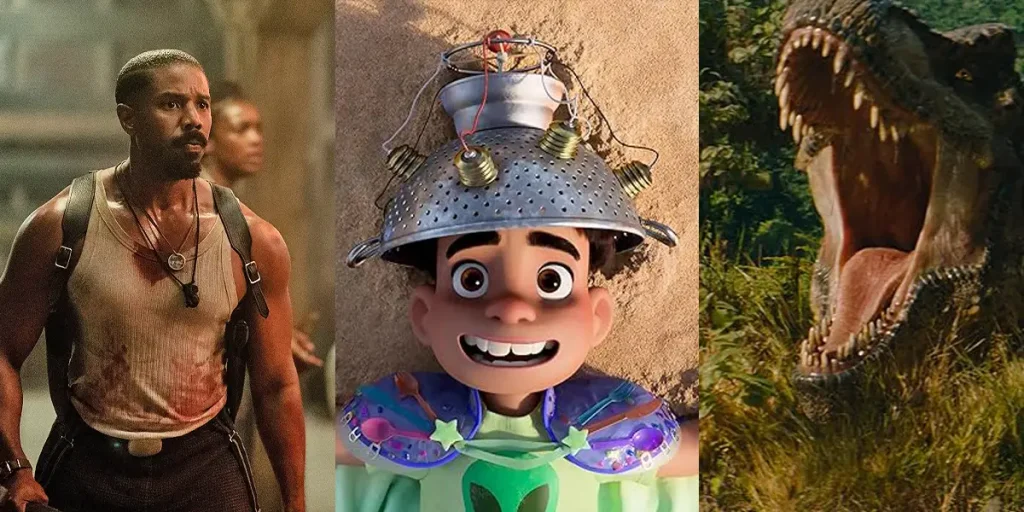Franchises dominate the box office while original movies struggle now more than ever. Let’s analyze the reasons why audiences don’t see original films.
It’s a sentiment that’s lingered for well over ten years now: why is nothing original in Hollywood anymore? And with that comes another question: why don’t audiences see what few original movies do come out, instead only showing up for the latest installment in a big franchise? It may be simple to say that people just don’t like new things and call it a day, but I’m seeking to not come off like a snob who sticks his nose up at the general public like they’re some lowlifes. I go to the movies every week for fun; I’m the weird one here.
This is all coming from a place of genuine curiosity and an attempt to understand why people seem so much less interested in original movies than they were decades ago. There are very obvious points whose drums have been beaten to death, but some angles may have been a bit overlooked. We’ll also bring up the rare original films that have found major success in recent years, and what they say about how more can hit it big with audiences. There’s a lot to cover, so let’s not waste any more time. Let’s go over the many potential reasons why audiences don’t see original movies anymore.
Audiences Care More About Nostalgia and Brand Recognition
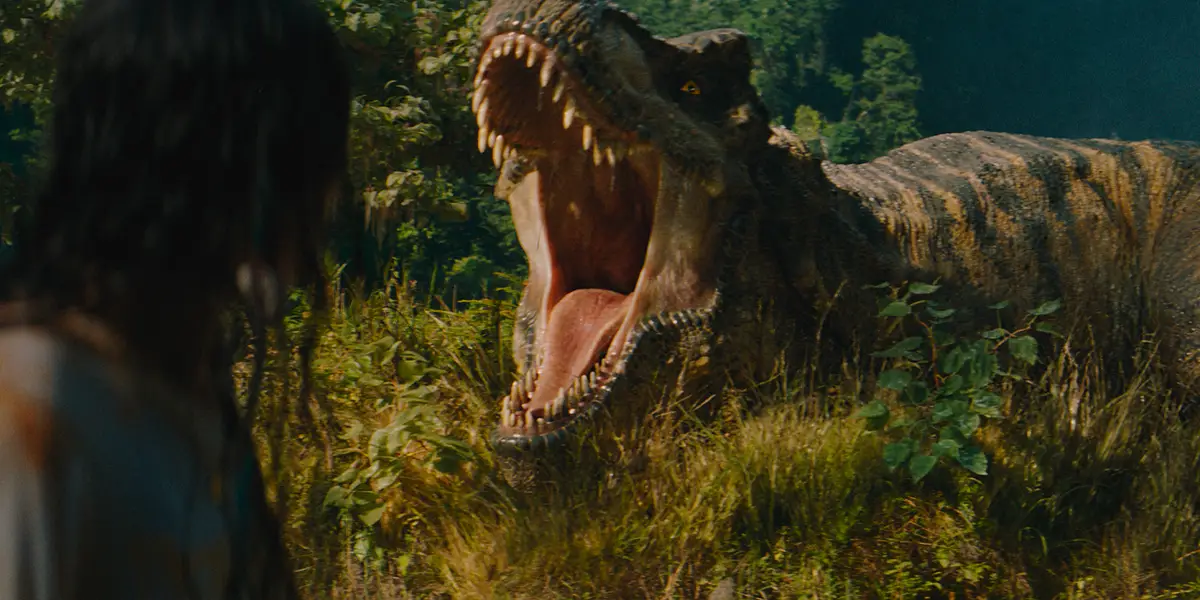
Okay, we’ll get the most obvious talking points out of the way first. Let’s say I wanted to sell someone on an original movie like Black Bag, a juicy thriller about a married couple of intelligence officers who find their love tested when the wife is suspected of treason. I could say it’s got great performances from recognizable actors, a witty and sometimes steamy script, and plenty of fast-paced twists and turns. Depending on who you are, you may be interested and may think about it enough to go see it. Or I could just say there’s a new Jurassic Park movie out. Nothing more. And you immediately have some thoughts about it, which are much more connected to something you already know and like. Even if you believe the movie won’t be good, that reaction will probably stay with you longer than your initial thoughts on Black Bag.
The movie theater experience is great. It’s also very expensive, inconvenient, and easy to ruin. In the past, however, there weren’t that many alternatives that people considered a worthy substitute for watching movies, so they’d more willingly go that extra mile even for something brand new. But recently, with inflation and modern technology, audiences are less willing to gamble their time and money on something that may or may not matter to them. If an original and unoriginal movie were both put in front of you on streaming, it may be a different story. But when the viewing experience requires more effort on your part, non-original theatrical films have a huge advantage in piquing your interest enough to make that effort.
Studios Don’t Have Faith In Original Movies
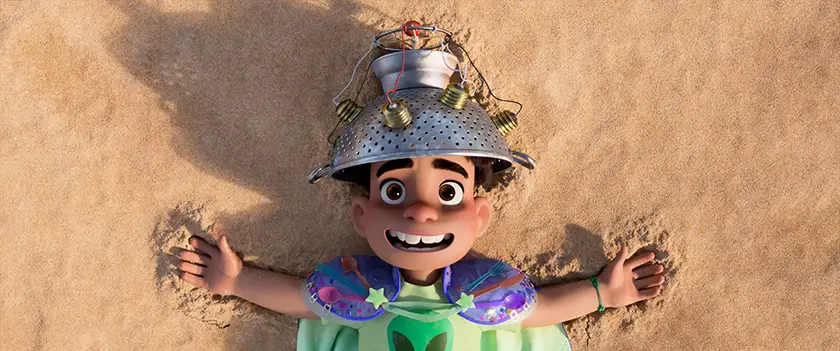
When audiences vote with their wallets, studios listen. And when audiences shell out buckets of money for one big franchise film, studios will make more. Which means people will see those movies, which means studios will make more, etc. Not only are moviegoers more prone to see something familiar, but studios are all too eager to feed that demand and funnel their resources in that direction. While it makes perfect sense to greenlight non-original movies, you’d hope that studios would keep mixing them in with brand-new material like they used to. But instead, they’ve gotten more carried away with what makes the most money, and moviegoers are now conditioned to only pay attention to those big IPs because of how oversaturated the market has become.
Even when an original movie does come around, some studios seem reluctant to promote them properly. Elio – the Pixar film about a boy who’s abducted by aliens and becomes their leader – is one of the most discussed box office disappointments of 2025, and the biggest perceived culprit is the film’s lack of marketing. I’ve heard so many people say they either hadn’t heard of this movie or didn’t know it was coming out, which would make sense had Elio had been made by a much smaller animation studio like Cartoon Saloon. But when Pixar is having this problem, which had already happened previously with Elemental, it speaks to their general lack of faith in originality on that scale.
On top of that, it seems like studios are too scared to let their original movies really offer new, challenging stories. Films like The Creator and Elemental are technically original, but they’ve been criticized for being so derivative that their “originality” doesn’t even matter. My theory is that this derivative nature is partially why they were able to get funding in the first place. If audiences can’t immediately connect to them because they’re part of some established property, studios probably want a connection to the types of stories viewers already know. But it seems this strategy usually backfires, as we get the worst of both worlds where an original movie has no franchise hook and is not enticing on its own.
The Lack Of Original Movies For Wide Audiences
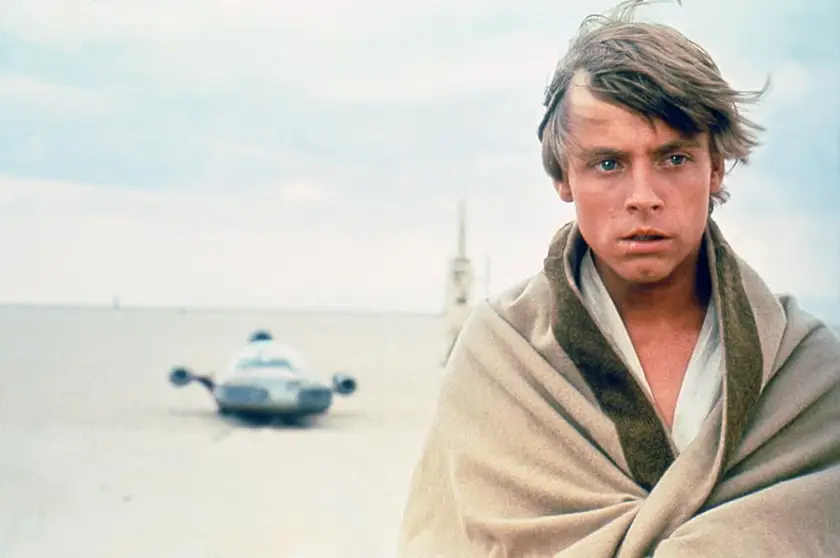
A common argument I hear is that there are still plenty of original movies out there. They’re just not the big blockbusters and more the smaller, indie films. That’s totally true… but how many of those films will grab most people’s attention or interest? Some have, but when I think of the most popular original movies of all time, I think of films like the first Star Wars, Ghostbusters, Independence Day, Raiders of the Lost Ark, and The Matrix. These are not obscure, low-scale movies that only reached specific circles when they came out. They were massive hits that everyone knew about and discussed. Granted, that was easier to accomplish back then, but Hollywood seemingly hasn’t even been trying to continue that magic with fresh ideas anymore.
Yes, an original movie is an original movie, whether it’s a giant action picture or a micro-budgeted drama. But it’s such an awesome experience to combine the discovery of a wholly new, creative story and world with the universal, heightened thrills of a bigger genre piece. If studios didn’t believe in that experience back in the 1970s, Star Wars would have been a failure and we wouldn’t have the beloved franchise we have now (although that’s looking more and more like a good thing every year). If the success of Sinners is any indication, audiences still have a yearning for these kinds of original experiences. They just need to have their interest recaptured in the same spirit – but with the tools of the modern day – that it was captured back when more original films could thrive.
Some Original Movies Were Never Meant To Be Hits
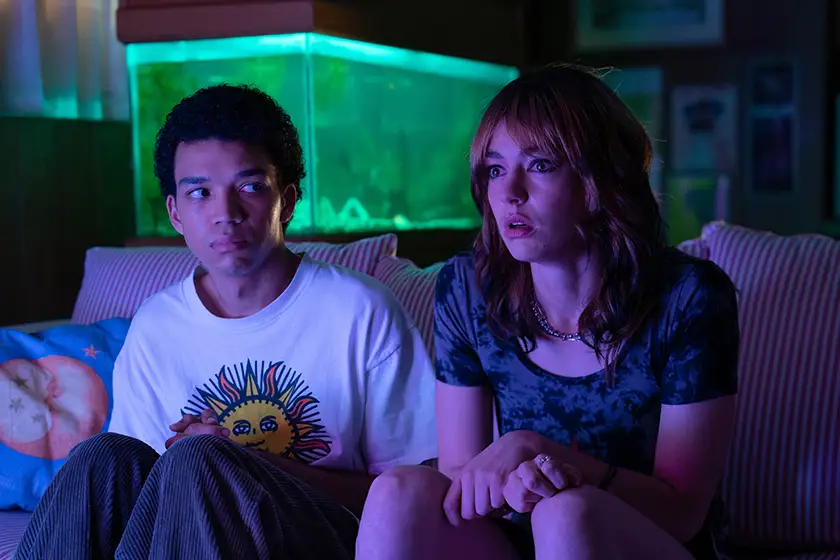
On that note, not all original movies are created equal. I could confidently recommend a genre film like Sinners or even a less “mainstream” movie like Anatomy of a Fall, because they’re great, broad, yet unique enough for me to imagine most people I talk to liking them. Then you’ve got something like I Saw the TV Glow, a slow, quiet, intentionally awkward horror movie about two kids who grow addicted to a late-night show as an abstract metaphor for the trans experience. It’s easily one of my favorite films of the 2020s… I can count the number of people I’d recommend it to on one hand. You’d need to have a very particular taste, or just be open to any kind of movie at all, to appreciate it.
The same applies to films like Beau is Afraid, Men, or even Challengers. I love all these movies, but I recognize they’re doing something very off-the-wall and require their viewers to be on an extremely specific wavelength. Their commercial irrelevance doesn’t mean people don’t want original films. It means they’re really f**king weird movies that were always destined to be niche. And that’s okay. These types of original movies still need to be made for oddballs like me. But if you want to make a case that original movies are dying, these are not the underperforming examples I’d go to. Something tells me Men, an Alex Garland film where naked men have multiple Russian doll births, isn’t quite for everyone… just a gut feeling.
Do Audiences Even Care About Quality?
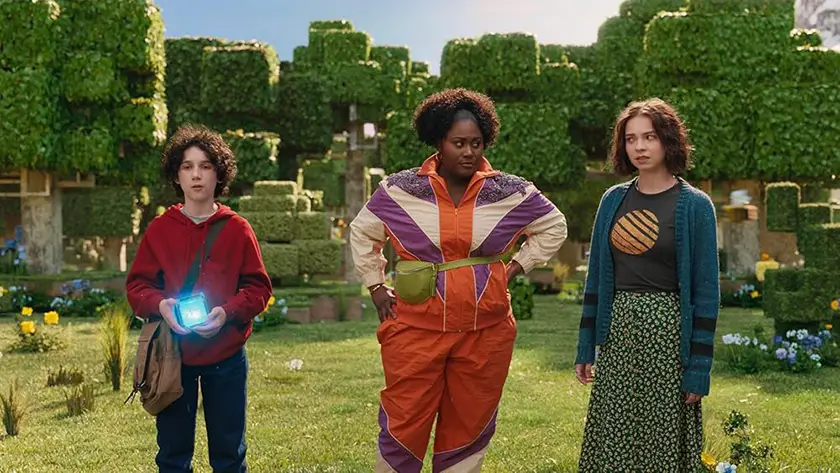
Whenever an original movie fails at the box office, and that movie happens to be regarded as middling or bad, I regularly hear something akin to, “Being original isn’t enough. A movie also has to be good.” I completely agree. No one should feel obligated to see a movie just because it’s original. But an implication of this argument is that audiences reward quality and reject mediocrity… So, explain how A Minecraft Movie made as much as it did. Or Despicable Me 4, or the new Lilo and Stitch, or Jurassic World Rebirth. Whether you like these movies or not, very few people would say they’re of higher quality than some underperforming originals like Elio. In the case of A Minecraft Movie, many would say it’s not of higher quality than a two-hour sh*tpost.
On the other hand, I look back on Summer 2023, where one tentpole flick after another underperformed and the only successes had mostly high praise like Across the Spider-Verse or Barbie. So, why does quality only sometimes make a difference? I really don’t know… but that question is nowhere near new. You could go on for hours listing decades’ worth of great films that commercially failed and bad films that were big hits, both original and non-original. So, even if you think a certain original movie isn’t very good, I don’t think it’s fair to use that as the blanket reason it didn’t succeed. A film’s quality matters, but it’s far from the sole deciding factor.
Media Consumption Has Changed
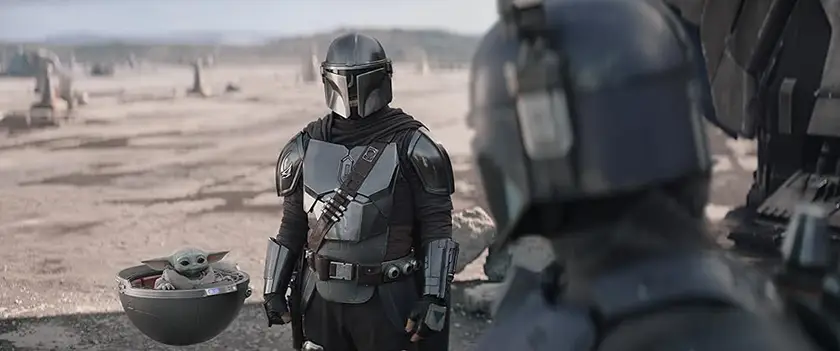
The change in media consumption compared to even 10-15 years ago has affected the movie industry as a whole, but especially original films. Theatergoing had been on the decline even before COVID-19, but that drop rapidly accelerated in the 2020s, which means all but the most surefire hits now have trouble making money at the box office. When it comes to original movies, that difficulty is magnified and lopsided because there’s even less space for them in the dwindling market. It’s harder for word-of-mouth to spread when there are less mouths at the movies.
Speaking of word-of-mouth, how would an original movie grow its audience in the past? By people telling others to go see it, yes, but also by people discovering it after it leaves theaters. And how would you do that in the old days? By going out, finding something that looks interesting on DVD or video, and giving it a watch. Which, in turn, makes the film more money that incentivizes studios to take more risks. How does a film spread its audience nowadays? By people not venturing outside their homes and instead just browsing their streaming service until they find something, which is often whatever the service recommends based on the user’s previous watches.
Everyone’s talked about how streaming takes money away from the box office, but it’s also changed human behavior in general, because we no longer go out of our way to find new entertainment. We used to put effort into finding a movie to see either in theaters or at home, and we worked our schedules and viewing habits around that effort because… well, that was the only way we could find anything. This not only increased the chances of discovering an original movie, but it also spread word-of-mouth faster because everyone was exposed to the same media. Entertainment across all mediums used to be much more centralized, meaning more of it could catch on with more people.
Now, internet-based services are personalized exclusively to your own interests and viewing habits, using algorithms to funnel every individual down their private bubble of content. The “content” needs to come to us, not the other way around. This can seriously harm our sense of discovery because we have nearly unlimited options that don’t require going beyond our comfort zone for the next big thing to watch. We’ll stick to what we already know we like. And that mindset, I believe, has bled into what movies the public will see when they make a rare theater visit. It massively stunts the chances of original movies not only getting seen, but even heard about.
Reviewers And Content Creators Thrive Off Non-original Movies
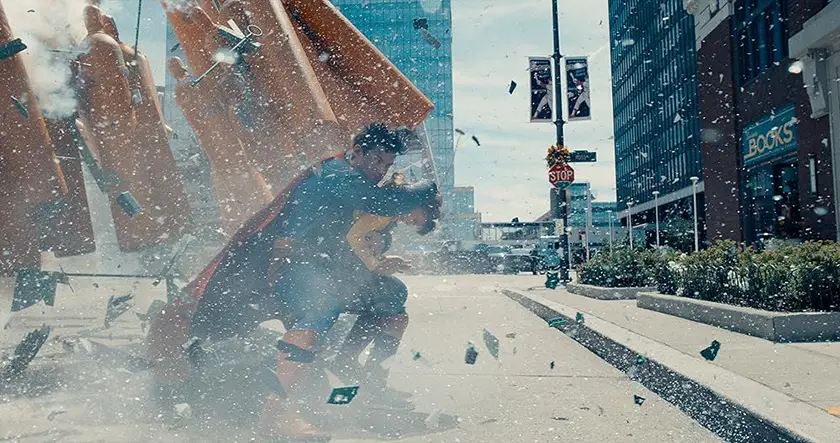
This, in my mind, is one of the most underdiscussed ways original movies have been losing their support. I’m not about to take shots at my fellow online reviewers and movie-based content creators. But when you look at some of the most popular film critics on YouTube, what tends to comprise the majority of their content? Reviews, news, or general discussions about the latest big franchise movies, with maybe the odd video about an original film. So, you’ve got voices on the front lines of the film space not guiding people towards great originals, but instead bloating public interest in the already dominant non-originals.
Listen, I get it. A lot of these critics need to make a living, and a YouTube video about an arthouse film out of Sundance isn’t going to keep the lights on. But the degree to which a lot of these creators seem to only follow the money is very likely hurting the original film scene. It reinforces the notion that the franchises, sequels, adaptations, spin-offs, etc. are the real big deals to follow, and that everything else is just on the sidelines. It’s a vicious cycle of supply and demand: people care more about big IPs, so reviewers talk more about big IPs, which makes people care more, which makes reviewers talk about them more, yadda, yadda, yadda.
So, then… break that cycle. Make your large audience care about something original more often. Hell, make some horrible, clickbaity thumbnail with a title like, “THE BEST NEW MOVIE YOU SHOULD BE WATCHING.” It won’t catch nearly as much fire as your review of the next superhero movie, but it’ll catch some fire. And if that happens across the board… Well, there you go. You’ve potentially got a hit original movie on your hands.
The internet may have caused people to form their own viewing habits, but it’s also a way for even the most obscure media to potentially get attention. With a critic’s job being partially to recommend something people may not know they want, maybe it’s time for more critics – myself included – to actually do that job and make it cool to see original movies again.
How Did Sinners Succeed As An Original Movie?
Let’s shift from the reasons original films have failed to the reasons why one in particular has greatly succeeded. As of writing this, Sinners is the only original, non-indie, wide theatrical release in 2025 that brought in crowds on par with the year’s nonoriginal slate. The horror/thriller isn’t an all-time top grosser, but it had a strong opening, held exceptionally well thanks to good word-of-mouth, and handily turned a profit while being actually known by the general public. And ever since, I’ve been wondering how in the world it pulled this off.
For one thing, Sinners has wide genre appeal, in that it’s a horror film that horror fans can enjoy without being so bizarre that it alienates more casual members of that group. It also incorporates elements of music, crime drama, romance, action, commentary, and a celebration of the Black experience, all packaged together in a skillful and entertaining way. It’s one of the few films that can please a bunch of different crowds without sacrificing its own one-of-a-kind identity.
On the marketing side, the twin brothers are both played by Michael B. Jordan. Star power isn’t what it used to be, but that’s still a selling point for a lot of people. Director Ryan Coogler also has an established enough career to afford some decent advertising and prestige attention from cinephiles. Finally, the reviews weren’t just good; they were glowing, with many critics calling it the best film of the year at that point. In short, Sinners offered something that very few original movies of its scale have been offering: a bold, memorable experience that draws eyes in all the right ways.
2025 gave us other original films like Elio, Companion, and Novocaine that, in another era, may very well have made a big splash at the box office. They’re decent movies and pleasant ways to spend an evening at the theater. But right now, it’s not enough for an original movie to just be good. It needs to look like it’s going to wow you, or give you something you haven’t seen before. That sucks and isn’t fair, but it’s the reality of theatergoing in the 20s. These movies are very reminiscent of many other – typically better – films, and they’re not so stellar that they can afford to blend in like that. Whatever you think about Sinners, it does everything except blend in.
How To Get People To See Original Movies
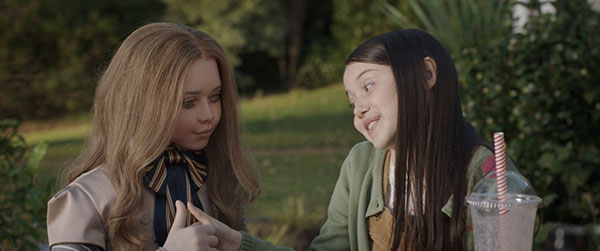
When I look at a lot of recent films that hit it big – such as Spider-Man: No Way Home, Top Gun: Maverick, Barbie, Oppenheimer, Wicked, A Minecraft Movie, or even Dune: Part Two – there’s one thing that they all have in common aside from being based on something else: seeing them in the first place was a big deal. Each one was propped up as something that became “hip” to check out and offered an experience that people rarely got anymore, if ever. The reasons include just how good the movie is, how massive a spectacle it is, or how much it took its property to unprecedented places that you wouldn’t dream of missing.
Or, in the cases of Barbie, Oppenheimer, and Minecraft, let’s be real: they owe a ton of their successes to memes. The whole “Barbenheimer” trend transformed from a silly joke to a genuine selling point for so many people. Minecraft was likely written and directed for the sole purpose of being memeable, and it worked. In all three cases, these movies became must-sees because the very idea of watching them in theaters was a big deal to everyone, not just film buffs. And then, the actual experience of seeing them was also memorable, for good or bad reasons. If they were just run-of-the-mill movies, I don’t believe they’d have pulled in the numbers they did.
I think the way to make original movies big again is to capture that kind of momentum in the public consciousness. And I think a few original movies have. Look at M3GAN, the January horror comedy about a robot girl who turns evil. Nobody cared about it when it was first announced, but as soon as that trailer with M3GAN dancing and flipping around hit the scene, its sheer absurdity let the movie reach such iconic status that it actually drew in crowds. And then, the movie was good enough to ride that to financial success… until the sequel came out.
I’m not saying movies should be made around marketing gimmicks. I’m saying there’s an art to making a movie culturally relevant before and during its release. With the promise of spectacle, a big star, memorably unconventional advertising, or just plain sufficient advertising, an original movie can catch on in the same spirit that the biggest heavy hitters have. They won’t make Barbie levels of money, but they’ll find healthy crowds. And yes, some luck is definitely needed, but that’s always been the case and always will be. Many would agree, though, that the gamble is just as important to take as it’s always been.

